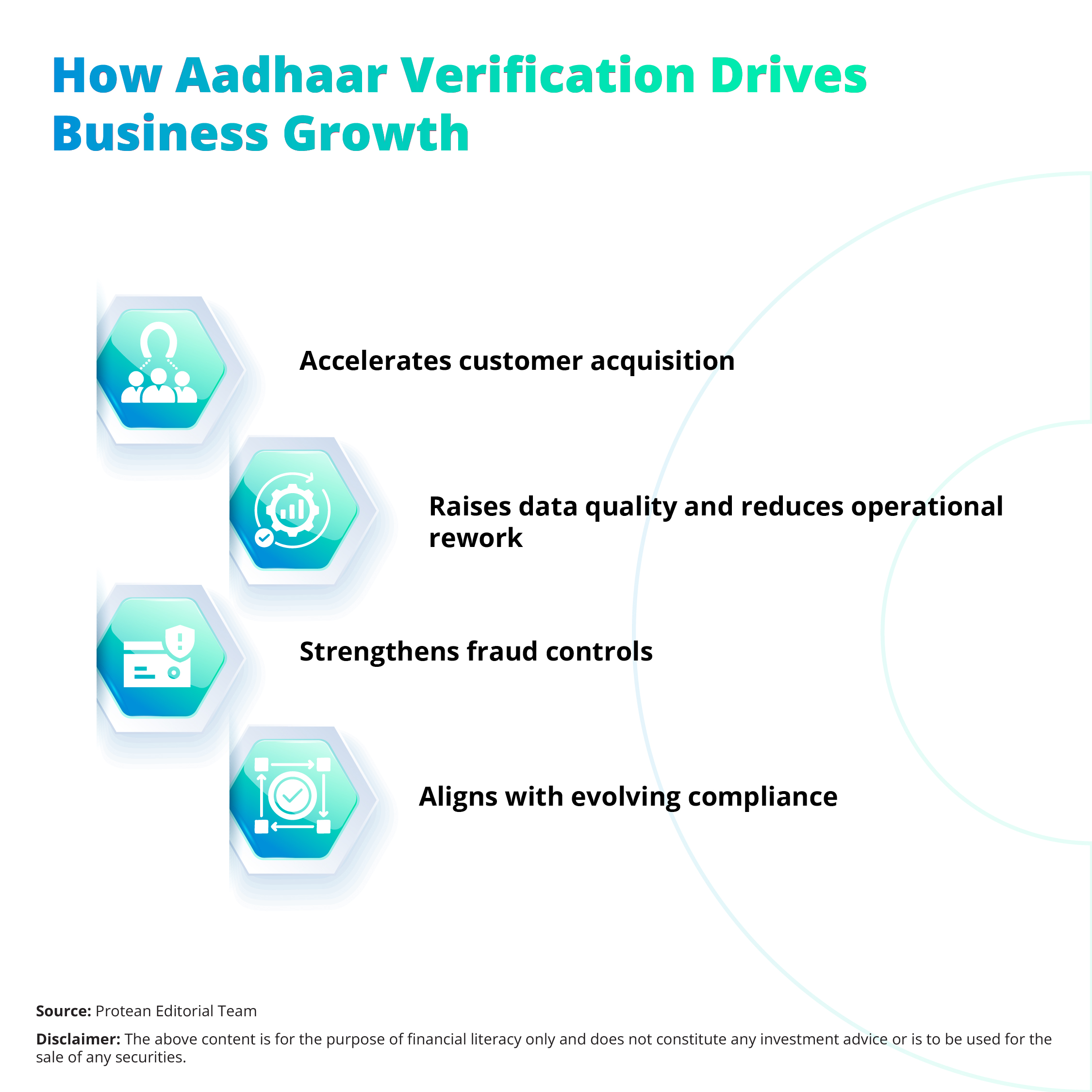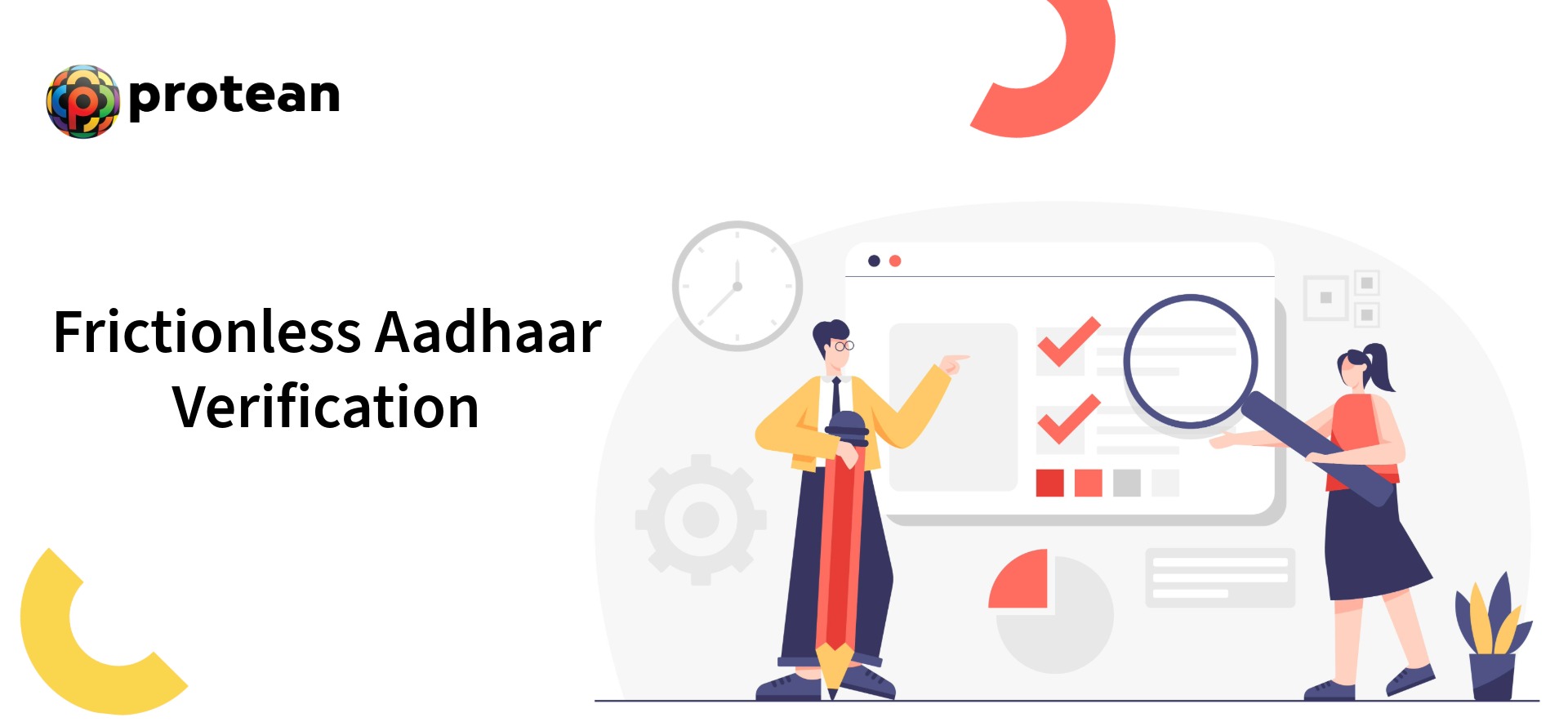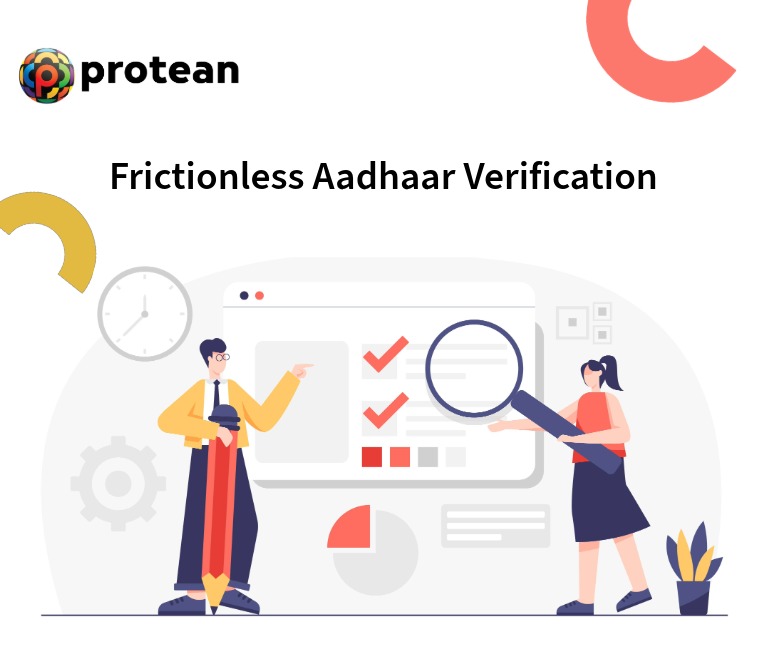What are the benefits of Aadhaar number verification for business? Is Aadhaar better for online verification and identity verification in business?
Let’s find out!
Aadhaar number verification can enable fast, auditable, and secure identity verification at scale.
Recent developments such as UIDAI’s enablement of seamless e-KYC for large service providers and ongoing upgrades to offline KYC, showcase the system’s reach and reliability across India. Enterprises that embed Aadhaar-based online verification into onboarding and risk workflows can do the following:
- Reduce drop-offs
- Control fraud
- Meet regulatory expectations smoothly
The result can be better conversion, lower cost to serve, and stronger compliance. This’s exactly what leadership teams expect from modern identity verification.
What is Aadhaar Number Verification?
Aadhaar number verification is the process of confirming an individual’s identity against UIDAI’s trusted digital identity infrastructure. It can be carried out through multiple methods, including:
- OTP-based e-KYC
- Biometric authentication
- Face authentication
- Paperless offline e-KYC
These methods can enable businesses to verify identities within seconds, receive standardised machine-readable responses, and maintain an auditable trail for compliance reviews.
The paperless offline e-KYC option can further allow individuals to share an XML file or QR code, making it particularly useful for organisations that wish to minimise direct handling of sensitive data.
Notably, UIDAI is upgrading the offline KYC framework so that verification can be completed without disclosing the Aadhaar number or even using an OTP. This advancement can enhance privacy safeguards while broadening adoption across both financial and non-financial services.
How Aadhaar Verification Drives Business Growth
Further, in June 2025 alone, residents completed approximately 229 crore authentication transactions and over 39 crore e-KYC checks, reflecting robust and rising usage across the economy. This scale provides the reliability and resilience enterprises need for peak-volume events or nationwide rollouts.

First, it accelerates customer acquisition - Electronic and face authentication remove paperwork and enable straight-through onboarding in digital journeys. Lower friction can improve conversion and reduce abandonment, particularly on mobile.
Second, it raises data quality and reduces operational rework - Standardised, machine-readable responses can limit name mismatches and reduce downstream exceptions.
Third, it strengthens fraud controls - UIDAI’s enhanced enrolment norms and authentication controls reduce impersonation risk and bolster trust in real-time decisions.
Finally, it aligns with evolving compliance - SEBI has allowed intermediaries to leverage NPCI’s e-KYC Setu system. This can simplify Aadhaar data handling for regulated entities and eases supervisory reviews.
Main Use Cases Across Industries
Let us look at some popular Aadhaar online verification industry use-cases:
Telecom and Connectivity: As India scales next-gen connectivity, providers are adopting Aadhaar authentication to deliver swift, compliant onboarding. A headline example is Starlink’s partnership with UIDAI to use Aadhaar e-KYC for customer verification, demonstrating how Aadhaar supports high-volume, regulated onboarding for innovative services.
Financial Services (banks, NBFCs, wealth, broking): Aadhaar e-KYC shortens account opening and loan origination from days to minutes while maintaining regulator-ready audit trails. With SEBI permitting intermediaries to use NPCI’s e-KYC Setu, brokers and other entities can streamline onboarding and reduce the burden of managing Aadhaar data directly, supporting secure, scalable identity verification. The planned upgrades to offline KYC will further widen adoption by minimizing data shared during verification.
Insurance and Health: Insurers can verify policyholders and nominees quickly, reduce proposal fraud, and speed claim settlements where identity validation is critical. Aadhaar verification also facilitates compliance with KYC norms for health and micro-insurance distribution at scale. (UIDAI’s offline and face authentication options are especially useful for remote and assisted journeys.)
E-commerce and Logistics: Merchant and buyer onboarding benefit from fast, low-friction checks that cut fake listings, synthetic identities, and return fraud. Faster verification enables same-day activation for sellers and drivers, improving marketplace liquidity. The private-sector access to Aadhaar authentication broadens these benefits beyond public services to diverse industries.
Public Sector and Social Schemes: High-assurance identity verification supports transparent, auditable benefit delivery while policy clarifications ensure no eligible beneficiary is denied solely for lack of Aadhaar authentication, balancing efficiency with inclusion.
Conclusion
Aadhaar number verification has matured into a secure, scalable, and business-friendly identity layer for India. The recent momentum from large providers adopting e-KYC to UIDAI’s privacy-forward upgrades underscores why enterprises should integrate Aadhaar authentication now.
Partnering with a robust gateway provider, such as Protean eGov Technologies can help organisations operationalise these capabilities quickly and safely across sectors.
Get in touch now to get an eKYC update for your business onboarding processes.
Frequently Asked Questions
1) Is Aadhaar number verification secure enough for regulated onboarding?
Yes. Aadhaar e-KYC and authentication operate over UIDAI’s secure rails with standardized response formats and audit trails. The scale of monthly authentications and e-KYC volumes indicates mature, resilient operations suitable for financial and telecom-grade onboarding.
2) What if my business prefers privacy-preserving verification?
UIDAI’s paperless offline e-KYC lets customers verify identity by sharing an XML/QR file, limiting exposure of personal data. UIDAI is also revamping offline KYC so users can complete verification without sharing their Aadhaar number or OTP, enhancing privacy and usability.
3) How does Aadhaar help with regulatory expectations in capital markets?
SEBI now allows intermediaries to use NPCI’s e-KYC Setu system. This reduces operational complexity, limits direct handling of Aadhaar data by entities, and supports consistent, regulator-aligned digital KYC at scale.
4) Which implementation partners should we consider?
Enterprises should work with established providers that offer compliant Aadhaar Authentication APIs, robust security, and domain expertise. Protean provides Aadhaar authentication solutions and guidance for private-sector use cases across banking, fintech, insurance, telecom, and e-commerce, helping teams launch faster with compliance built-in.

